When it comes to roofing, choosing the right material can make all the difference in terms of durability, aesthetics, and cost-effectiveness. Whether you’re building a new home, upgrading an old roof, or looking for industrial solutions, the type of roofing sheet you choose plays a crucial role. But with so many options out there, how do you decide which is the best for you?
In this extensive guide, we’ll dive deep into the world of roofing sheets, examining various materials, their uses, advantages, and limitations. We’ll also provide a comprehensive breakdown of metal powders and their specific models used in roofing sheets, and provide a step-by-step explanation of how roofing sheets work. If you’re looking for specific data on performance, speed, or cost, we’ve got that too – all presented in a way that’s easy to understand and digest.
Overview of Roofing Sheets Types
Roofing sheets are vital components in modern construction, offering protective coverings for homes, industrial buildings, and warehouses. Over time, a wide array of materials has been developed, ranging from metals and plastics to asphalt and clay. Each of these materials brings its unique properties and is suited for different purposes, weather conditions, and aesthetic preferences.
Here’s a quick overview of the most popular types of roofing sheets:
- Corrugated Iron Sheets
- Galvanized Steel Sheets
- Aluminum Sheets
- Polycarbonate Roofing Sheets
- Fiberglass Roofing Sheets
- Plastic Roofing Sheets
- Bitumen Roofing Sheets
- Stone-Coated Metal Roofing
- Stainless Steel Sheets
- Copper Roofing Sheets
Each type has its strengths and weaknesses. Factors like cost, durability, ease of installation, and weather resistance all play a role in determining which sheet is the best fit for your project.
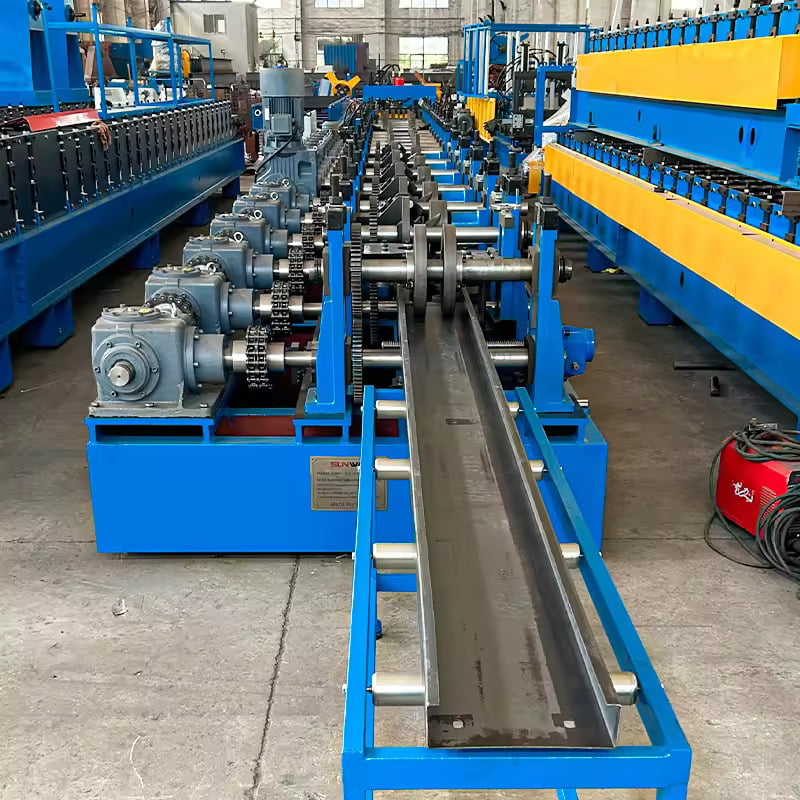
Corrugated Iron Sheets
Corrugated iron sheets are one of the oldest and most widely used roofing materials, particularly in industrial and agricultural settings. These sheets are manufactured by rolling sheets of iron into a wavy pattern, which increases their structural strength and resistance to weather conditions.
Key Features of Corrugated Iron Sheets
- Durability: The corrugation adds strength to the material, making it resistant to high winds and heavy rains.
- Affordability: Corrugated iron is one of the most cost-effective roofing solutions, making it ideal for budget-conscious projects.
- Ease of Installation: These sheets are lightweight, making them easier to transport and install.
- Versatility: Corrugated iron can be used on various building types, from homes to warehouses.
Detailed Breakdown of Roofing Sheet Types
| Type of Roofing Sheet | Material | Durability | Cost Range | Common Applications |
|---|---|---|---|---|
| Corrugated Iron Sheets | Iron | High | $5 – $10/sq. ft. | Industrial buildings, sheds |
| Galvanized Steel Sheets | Steel with zinc coating | Very High | $6 – $12/sq. ft. | Residential and commercial roofs |
| Aluminum Sheets | Aluminum | Moderate | $8 – $15/sq. ft. | Coastal homes, warehouses |
| Polycarbonate Roofing Sheets | Polycarbonate plastics | Moderate | $10 – $20/sq. ft. | Greenhouses, carports |
| Fiberglass Roofing Sheets | Fiberglass | Low | $7 – $13/sq. ft. | Skylights, industrial buildings |
| Plastic Roofing Sheets | PVC | Low | $3 – $8/sq. ft. | Sheds, temporary structures |
| Bitumen Roofing Sheets | Asphalt | High | $4 – $9/sq. ft. | Residential homes |
| Stone-Coated Metal Roofing | Metal with stone coating | Very High | $12 – $18/sq. ft. | High-end residential, commercial |
| Stainless Steel Sheets | Stainless Steel | Extremely High | $15 – $30/sq. ft. | Luxury homes, special projects |
| Copper Roofing Sheets | Copper | High | $20 – $40/sq. ft. | Historic buildings, luxury homes |
The Working Process of Roofing Sheets Types
Roofing sheets work by providing a barrier between your building and external weather conditions such as rain, snow, and sunlight. Depending on the type of sheet, they may be installed in overlapping patterns, fastened with screws or nails, and supported by a substructure like wooden beams or metal trusses.
Key Components and Their Functions in Roofing Sheets
| Component | Function |
|---|---|
| Base Material | Provides the structural strength and weather resistance of the sheet |
| Coating (if any) | Protects the sheet from corrosion, UV damage, and environmental exposure |
| Fasteners | Ensure the roofing sheets stay securely attached to the roof structure |
| Insulation Layer | Enhances thermal and sound insulation properties |
| Underlayment | Provides a secondary barrier against moisture |
Comparing Key Parameters: Machine Speed, Efficiency, and Customization
When it comes to the installation of roofing sheets, machinery plays a vital role in shaping, cutting, and installing the materials. Here are some key metrics to consider:
| Metric | Corrugated Iron | Aluminum | Polycarbonate | Stainless Steel |
|---|---|---|---|---|
| Forming Machine Speed | 15m/min | 10m/min | 8m/min | 12m/min |
| Efficiency | High | Moderate | Moderate | High |
| Customization Options | Limited | High | High | High |
-
 Highway Guardrail End Terminal Forming Machine
Highway Guardrail End Terminal Forming Machine -
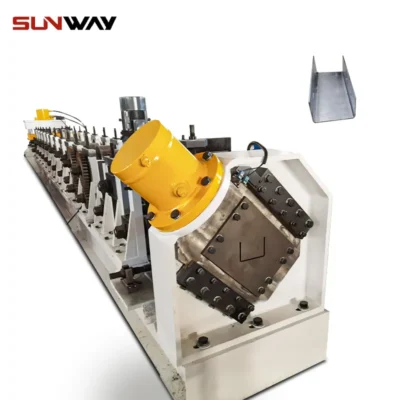 Highway U/C Post Roll Forming Machine
Highway U/C Post Roll Forming Machine -
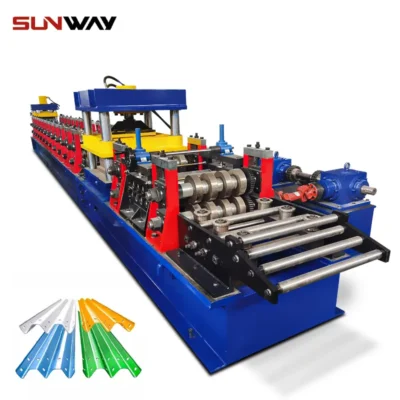 2 Waves Highway Guardrail Roll Forming Machine
2 Waves Highway Guardrail Roll Forming Machine -
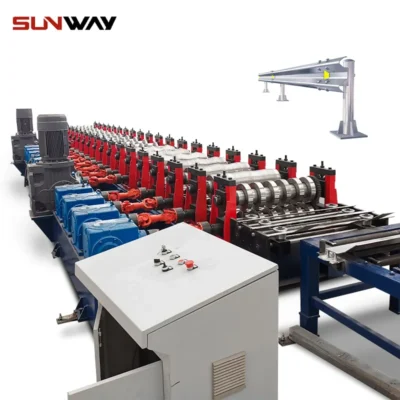 3 Waves Highway Guardrail Roll Forming Machine
3 Waves Highway Guardrail Roll Forming Machine -
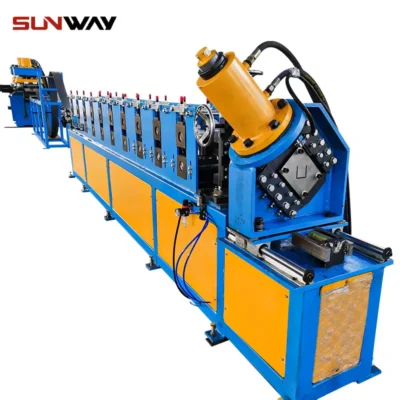 Electrical Cabinet Frame Roll Forming Machine
Electrical Cabinet Frame Roll Forming Machine -
 Din Rail Roll Forming Machine
Din Rail Roll Forming Machine -
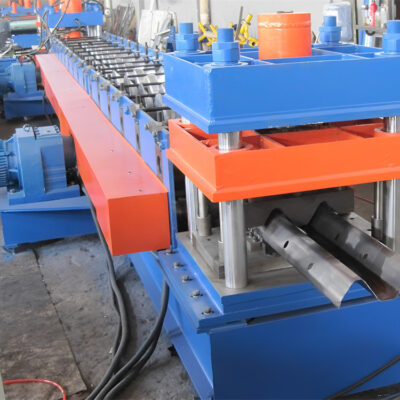 Two waves highway guardrail machine
Two waves highway guardrail machine -
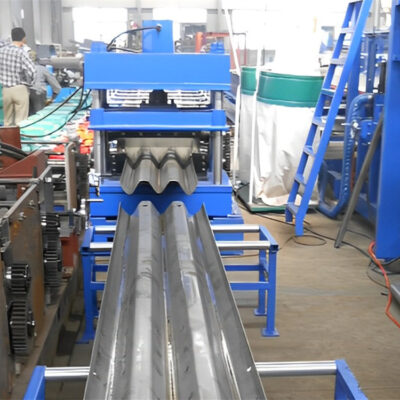 Three waves highway guardrail machine
Three waves highway guardrail machine -
 Cable Ladder Roll Forming Machine
Cable Ladder Roll Forming Machine
Mechanical Parameters for Customization
For large-scale or custom projects, roofing sheets can be adjusted according to certain mechanical parameters. Here’s a breakdown of some common customizable factors:
| Parameter | Possible Range |
|---|---|
| Thickness | 0.5mm – 5mm |
| Width | 800mm – 1200mm |
| Length | Up to 6 meters |
| Color Coating Options | Various (RAL chart) |
| Curvature | Straight or curved |
Applications of Different Roofing Sheet Types
The versatility of roofing sheets means they can be used in a variety of contexts, from residential homes to large industrial complexes. Here’s how each sheet type is commonly used:
| Roofing Sheet Type | Common Uses |
|---|---|
| Corrugated Iron Sheets | Warehouses, sheds, agricultural buildings |
| Galvanized Steel Sheets | Commercial, residential roofs, and external cladding |
| Polycarbonate Roofing Sheets | Greenhouses, skylights, conservatories |
| Bitumen Roofing Sheets | Residential homes, garden sheds |
| Stone-Coated Metal Roofing | High-end residential, office buildings |
| Copper Roofing Sheets | Historic restoration, luxury homes |
Installation, Operation, and Maintenance of Roofing Sheets
Proper installation, operation, and maintenance of roofing sheets ensure their longevity and efficiency. Here’s what you need to know:
| Task | Best Practices |
|---|---|
| Installation | Follow manufacturer guidelines, ensure proper overlap, use the correct fasteners |
| Operation | Regular inspections for leaks or damage; ensure gutters are clean |
| Maintenance | Clean regularly, apply protective coatings when necessary, replace damaged sheets |
Suppliers and Price Range for Roofing Sheets
Finding the right supplier is crucial when selecting roofing sheets. Here’s a breakdown of major suppliers and their general price range:
| Supplier | Location | Types of Roofing Sheets | Price Range (per sq. ft.) |
|---|---|---|---|
| ABC Supply Co. | USA | Metal, Polycarbonate | $5 – $20 |
| Tata Steel Roofing Solutions | India | Corrugated, Aluminum | $4 – $18 |
| Kingspan Roofing Systems | Europe | Insulated panels, Metal | $7 – $25 |
| BlueScope Steel Limited | Australia | Colorbond, Zincalume | $5 – $18 |
| Saint-Gobain | Global | Fiberglass, Polycarbonate | $7 – $15 |
Choosing the Right Supplier
When choosing a supplier for your roofing sheets, consider the following factors:
- Reputation: Look for reviews and case studies to ensure the supplier has a history of providing quality materials.
- Customization Options: Some suppliers offer more customization options, including thickness, color, and material coatings.
- Delivery Time: Ensure the supplier can meet your project deadlines.
- Customer Support: Having a responsive customer support team can be invaluable, especially for large-scale projects.
Pros and Cons of Roofing Sheets Types
| Type | Pros | Cons |
|---|---|---|
| Corrugated Iron Sheets | Affordable, Durable | Susceptible to rust without proper coating |
| Galvanized Steel Sheets | Corrosion resistant, Long-lasting | Can be more expensive than other materials |
| Aluminum Sheets | Lightweight, Rust-proof | Can dent easily |
| Polycarbonate Roofing Sheets | Transparent, Lightweight | Lower durability compared to metal sheets |
| Fiberglass Roofing Sheets | Transparent, Cheap | Brittle and prone to cracking |
| Bitumen Roofing Sheets | Waterproof, Cost-effective | Limited lifespan, may require more maintenance |
| Stone-Coated Metal Roofing | Aesthetically pleasing, Durable | Expensive |
| Stainless Steel Sheets | Long-lasting, Resistant to corrosion and fire | Very expensive compared to other options |
| Copper Roofing Sheets | Beautiful, Extremely durable | Highly expensive, Limited availability |
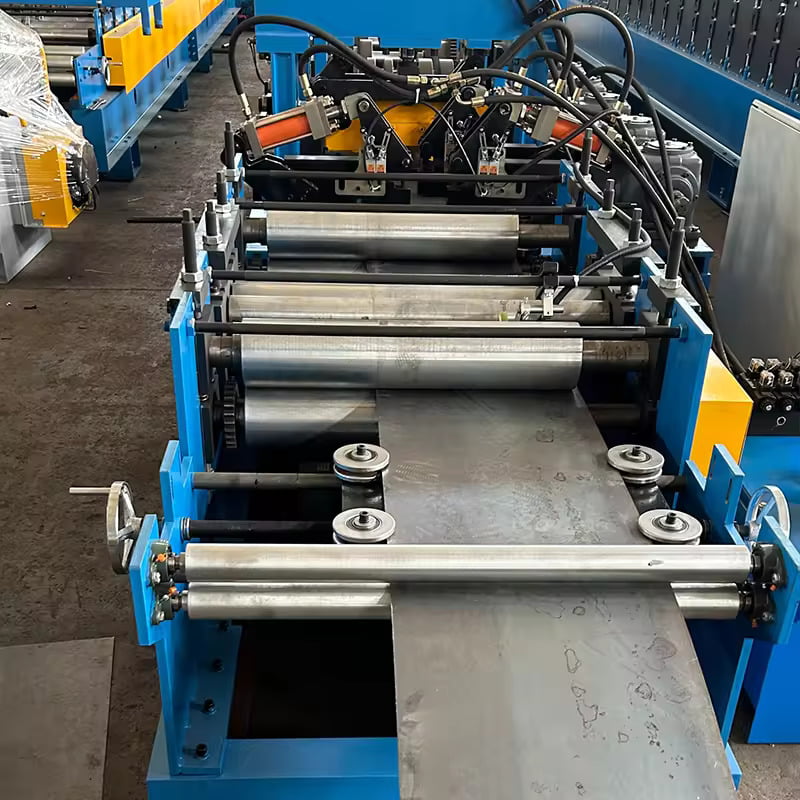
FAQ
| Question | Answer |
|---|---|
| What is the best roofing sheet for coastal areas? | Aluminum or stainless steel are ideal due to their corrosion resistance. |
| How long do roofing sheets last? | Most roofing sheets, if properly maintained, can last 20-50 years. |
| Are roofing sheets energy efficient? | Yes, some like polycarbonate and stone-coated metal offer insulation. |
| What’s the most cost-effective roofing sheet? | Corrugated iron and bitumen sheets are the most budget-friendly. |
| Can roofing sheets be painted? | Yes, many sheets, especially metal ones, can be coated in various colors. |
| How do I prevent my metal sheets from rusting? | Apply a protective coating like zinc or galvalume, and perform regular maintenance. |
Conclusion
Choosing the right type of roofing sheet depends on multiple factors, including your budget, the climate you live in, and the aesthetics you desire. By considering all aspects – from material types and installation methods to customization options and supplier reputation – you can ensure that your roof stands the test of time while enhancing the look and feel of your property.
